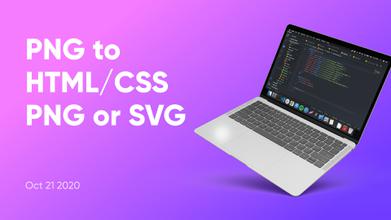Top 10 Programming Languages for AI: The Future of AI
Jul 24, 2023 9575 seen
The Most Famous Programming Languages for AI
Artificial Intelligence (AI) has emerged as one of the most transformative technologies of our time, impacting various industries and sectors. AI's potential seems limitless, from self-driving cars to personalized recommendation systems and natural language processing. Behind these groundbreaking applications lie powerful programming languages that drive AI research, development, and implementation. This article explores the most famous programming languages that have played a pivotal role in shaping the AI landscape.
Python
Python stands as the undisputed king among programming languages for AI. Its simplicity, readability, and versatility make it an ideal choice for AI development. Python's success is primarily attributed to its extensive libraries and frameworks dedicated to machine learning, such as TensorFlow, Keras, PyTorch, and sci-kit-learn. These libraries enable researchers and developers to implement complex AI algorithms with ease. Moreover, Python's active and vibrant community continuously contributes to the growth and improvement of AI tools, making it the go-to language for many AI practitioners.
R: Empowering Data Scientists
R, renowned for its statistical capabilities, has a strong presence in AI, particularly among data scientists and researchers. With many packages tailored for data analysis and visualization, R enables users to perform intricate statistical modeling and exploratory data analysis effortlessly. Its popularity in academia and research circles solidifies its position as a significant language in AI.
Java
Java, known for its portability and performance, is often the language of choice for large-scale enterprise AI applications. While Python and R dominate the research and data science communities, Java's robustness and scalability make it well-suited for building AI solutions that require handling substantial data volumes and serving thousands of concurrent users.
C++: The Language of Speed
Regarding real-time processing and performance-critical AI applications, C++ shines as the preferred language. Its low-level control and efficient memory management allow developers to implement high-performance AI algorithms and computer vision applications. C++ is frequently utilized in robotics, autonomous vehicles, and gaming industries, where speed and responsiveness are paramount.
Julia: The Rising Star
Julia, a relatively new language, has gained traction in the AI community for its focus on high-performance numerical computing. It aims to bridge the gap between ease of use, as seen in Python, and performance, as seen in C++. Julia's just-in-time (JIT) compilation and type system make it attractive for scientific computing and AI-related tasks. Researchers and developers are drawn to Julia for its promise of faster execution times and seamless integration with existing AI ecosystems.
Lisp: The AI Pioneer
Lisp has a historical significance in AI and remains relevant in specific AI applications today. Its flexibility and support for symbolic computation make it a preferred choice for building expert systems and natural language processing applications. Lisp's association with symbolic and rule-based reasoning has given it a unique place in AI research and development.
Prolog: The Logic-Based Language
Prolog is a logic programming language extensively used in AI for rule-based reasoning and expert systems. It excels in symbolic reasoning and backtracking algorithms, making it suitable for applications that require logical inference. While not as widely adopted as Python or Java, Prolog remains a compelling option for specific AI projects centered around logic and knowledge representation.
Scala: AI and Big Data
Scala, a versatile language on the Java Virtual Machine (JVM), has been used in AI applications involving significant data processing. Its seamless integration with Apache Spark, a famous extensive data processing framework, has made it appealing for building scalable and distributed AI solutions. Scala's functional programming features and strong typing capabilities enhance the development experience for AI engineers working on data-intensive projects.
JavaScript: AI on the Web
With the rise of web-based AI applications, JavaScript has found a place in the AI landscape. Libraries like TensorFlow.js and Brain.js have enabled AI development within web browsers, opening up possibilities for interactive AI applications. JavaScript's ubiquity and compatibility across platforms have further boosted its popularity in the web-driven AI domain.
Swift
Swift, Apple's programming language, has gained relevance in AI development for iOS and macOS applications. With the integration of Core ML, Apple's machine learning framework, Swift empowers developers to create AI-powered apps tailored to the Apple ecosystem. Swift's role in AI development will likely grow as AI continues to increase on mobile devices.
Conclusion
AI programming languages constantly evolve, with new languages and frameworks emerging as AI technologies advance. Python remains the dominant language, owing to its extensive AI libraries and active community. However, other languages like R, Java, C++, Julia, and more continue to hold significant positions in various AI domains. Each language offers unique strengths, and the choice depends on an AI project's specific requirements and objectives.
AI development will undoubtedly witness further advancements as we venture into the future, propelling programming languages to adapt and evolve alongside these innovations. With AI's potential to revolutionize industries and improve our daily lives, the role of programming languages in shaping the AI landscape will remain pivotal in powering the future of intelligent systems.


